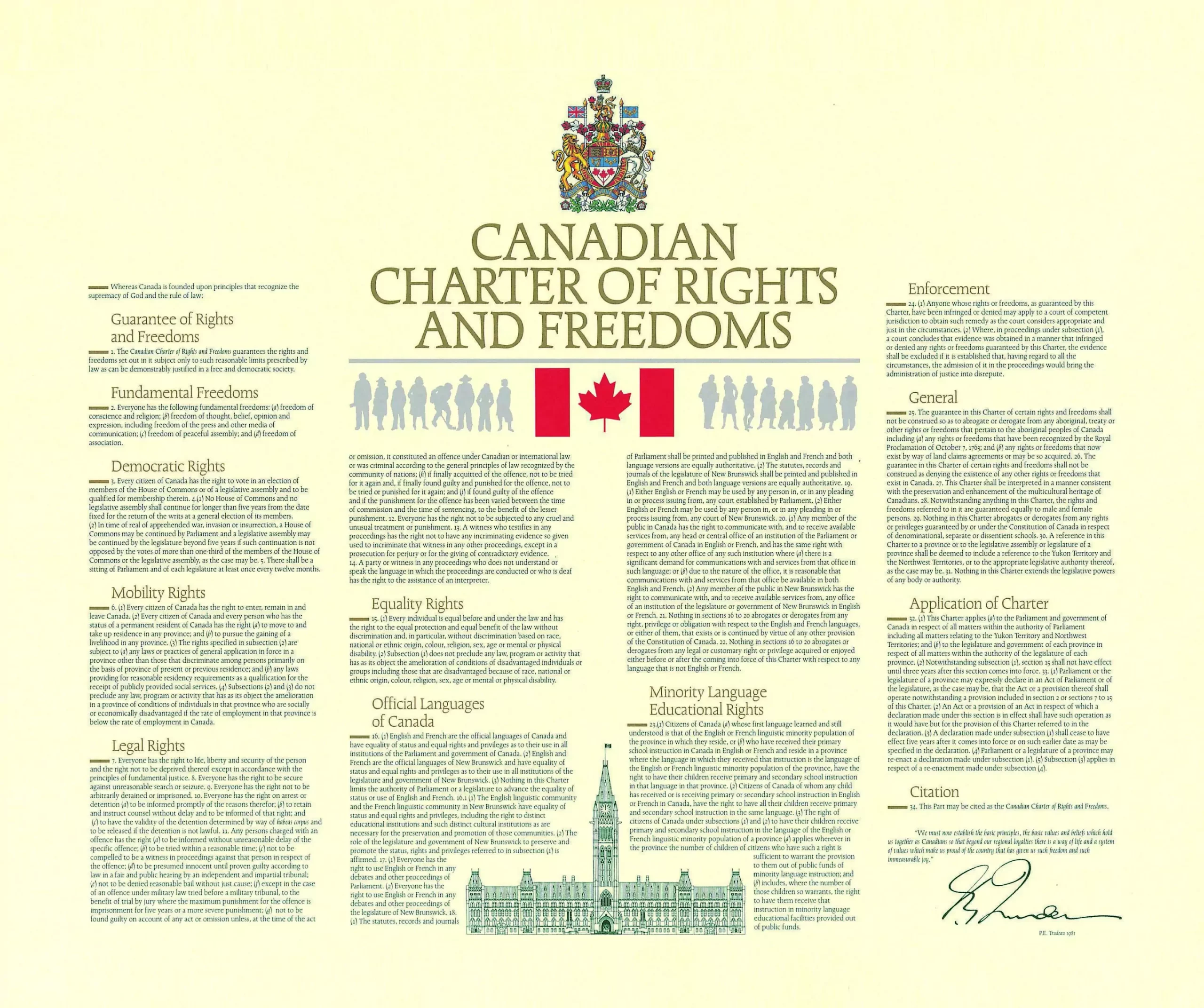Freedom of Association: Section 2(d) of the Charter
The Canadian Charter of Rights and Freedoms, a cornerstone of Canadian democracy, enshrines fundamental rights and liberties for all Canadians. Among these rights is Section 2(d), which guarantees the freedom of association. In this blog post, we will explore the significance of Section 2(d) and its implications for individuals and groups across Canada.
The Text of Section 2(d)
Section 2(d) of the Charter of Rights and Freedoms states:
"2. Everyone has the following fundamental freedoms: (d) freedom of association."
Understanding Freedom of Association
- Defining Freedom of Association: Section 2(d) safeguards the right of individuals to come together, form groups, and join organizations for various purposes. It encompasses a wide range of associations, from labor unions and advocacy groups to social clubs and religious organizations.
- Foundational to Democracy: Freedom of association is considered a fundamental pillar of democracy. It allows individuals to pool their resources and voices, advocate for common interests, and participate actively in civic life.
- Protection from Government Interference: Section 2(d) ensures that the government cannot arbitrarily interfere with an individual's right to associate with others. It shields citizens from state intrusion into their private associations.
Implications of Section 2(d)
- Labor Unions and Collective Bargaining: Section 2(d) plays a pivotal role in protecting the rights of workers to join labor unions and engage in collective bargaining. This empowers employees to negotiate better working conditions, wages, and benefits.
- Political Associations: It guarantees the right to join and support political parties, enabling citizens to engage in the democratic process by affiliating with parties that align with their values and priorities.
- Community Organizations: Section 2(d) allows people to create and support community-based organizations, charities, and non-profits, which are often vital for addressing local needs and promoting social well-being.
- Religious and Cultural Groups: It safeguards the right to practice one's religion and culture collectively by joining religious institutions, cultural associations, or community centers.
Challenges and Controversies
- Limits on Freedom of Association: While Section 2(d) protects the right to associate freely, there are limits. Associations cannot engage in illegal activities or activities that promote hate, violence, or discrimination. Striking the right balance between freedom of association and public safety remains an ongoing challenge.
- Corporate Freedom of Association: The Charter's protection of freedom of association has been extended to corporations, leading to debates about whether corporations should enjoy the same rights as individuals when it comes to political and social activism.
Section 2(d) of the Charter of Rights and Freedoms is a vital safeguard of Canadians' freedom to associate with others, join organizations, and collectively advocate for their interests. This fundamental freedom underpins a thriving civil society, vibrant democracy, and the diversity of voices and perspectives that make Canada a dynamic and inclusive nation. While it ensures the right to association, it also underscores the delicate balance between individual liberties and broader societal considerations, requiring ongoing legal and ethical discussions to maintain its integrity.

